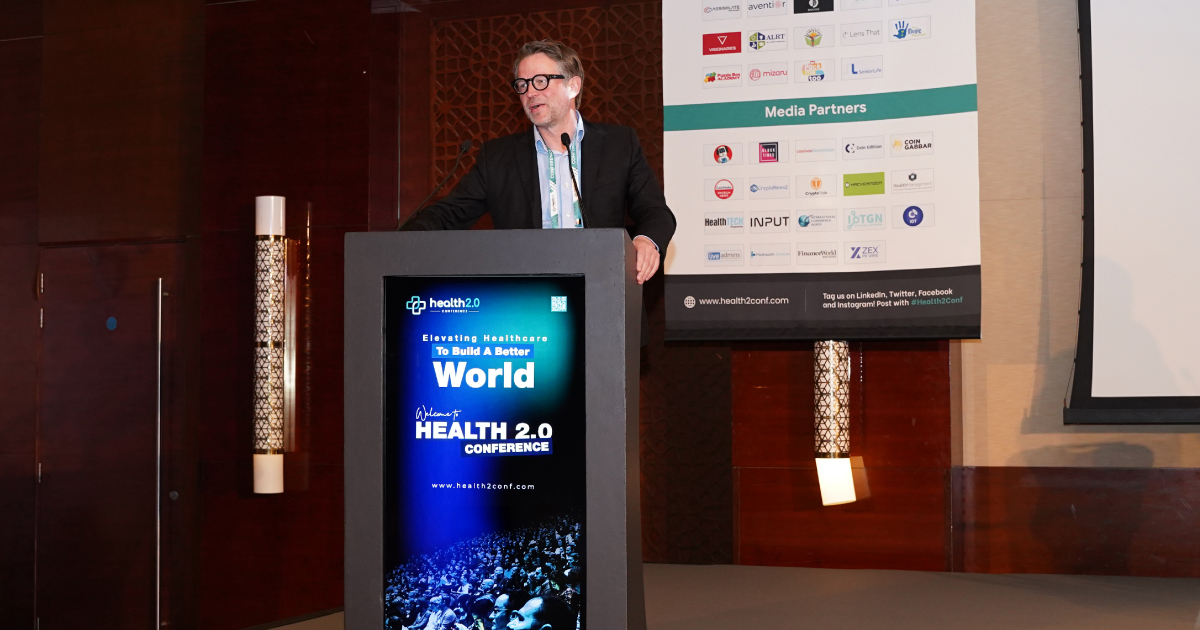In today's fast-paced and hectic world, more and more people are seeking alternative approaches to healthcare that focus on well-being and balance. One such approach gaining significant attention is holistic wellness. But what exactly does holistic wellness entail, and how does it differ from the traditional healthcare model we are accustomed to?
Holistic wellness is a comprehensive health and well-being approach considering mind, body, and spirit interconnectedness. It emphasizes the importance of addressing all aspects of a person's life to achieve optimal health and balance. Holistic wellness takes a more holistic view to address the underlying causes of health issues and promote well-being.
Upcoming healthcare events like Health 2.0 Conference are ready to explore holistic wellness and its intricacies. Benefits, challenges, and all the in-between debates are expected to be covered by experts.
Significant Benefits Of Holistic Wellness: Health 2.0 Conference Reviews
- Personalized Care
Holistic wellness recognizes that everyone is unique. This approach recognizes health needs may vary. It emphasizes personalized care, considering an individual's physical, emotional, and spiritual aspects. This is to tailor treatment plans.
Global healthcare event experts, like in the USA, have been all over this benefit. With extensive research being a norm in the health industry, tailored healthcare helps treat all unique patient needs.
- Prevention-Oriented
Holistic wellness emphasizes prevention rather than simply treating symptoms. The risk of chronic diseases can be reduced by adopting healthy lifestyle practices. They can maintain their well-being through proper nutrition and stress management.
- Integrated Approach
Holistic wellness encourages the integration of various healthcare modalities. It combines conventional and complementary therapies. This approach allows individuals to enjoy the best of both worlds. They can leverage the strengths of different treatments to promote healing.
- Enhanced Self-Awareness

Holistic wellness practices often involve mindfulness, meditation, and self-reflection. These techniques cultivate self-awareness. They enable individuals to better understand their bodies, emotions, and thoughts. This self-awareness can empower individuals to make healthier choices. They can manage their well-being more effectively.
- Improved Quality Of Life
Holistic wellness aims to enhance the quality of life. It addresses physical, mental, emotional, and spiritual well-being. By nurturing these aspects, individuals can experience greater fulfillment, purpose, and happiness.
- Empowerment And Responsibility

Holistic wellness empowers individuals to take part in their health and well-being. It encourages them to make informed decisions. They must take responsibility for their lifestyle choices. This shift in mindset can lead to a greater sense of control and empowerment.
- Long-Term Benefits
Holistic wellness offers long-term benefits. It addresses the root causes of health issues and promotes lifestyle changes. Rather than providing temporary relief, it focuses on sustainable and lasting improvements. This leads to better health outcomes in the long run. Global healthcare conferences, notably in Dubai, are expected to review this prominent benefit at upcoming healthcare events.
While the benefits of holistic wellness are evident, its impact on mental health deserves special attention. This approach offers three significant benefits:
Stress Reduction
Holistic wellness practices can reduce stress levels. These include meditation, deep breathing, and yoga. These techniques help individuals relax, calm their minds, and promote inner peace. They improve their mental well-being.
Emotional Balance
Holistic wellness acknowledges the importance of emotional health. It offers tools and techniques to promote emotional balance. By addressing emotional challenges and fostering emotional intelligence, individuals can develop healthier coping mechanisms and experience greater emotional well-being.
Mind-Body Connection
Holistic wellness recognizes the intricate connection between the mind and body. It understands that mental and emotional factors can impact physical health and vice versa. Individuals can achieve better mental health outcomes and well-being. They can do so by nurturing the mind-body connection.
Major Holistic Approaches: What Holistic Wellness Has To Offer
- Nutrition
Holistic wellness places great importance on proper nutrition as a foundation for good health. It emphasizes the consumption of whole, nutrient-dense foods. It encourages individuals to pay attention to their body's unique nutritional needs. individuals can support their well-being and promote optimal physical and mental health. This is done by adopting a balanced and nourishing diet. Health 2.0 Conference’s, Dubai, and USA editions are expected to highlight this prevalent holistic approach.
- Exercise And Movement
Physical activity is another integral component of holistic wellness. Engaging in regular exercise and movement promotes not only physical fitness but also supports mental and emotional well-being. Whether through yoga, or any other form of exercise, staying active can boost energy levels. It improves mood, reduces stress, and enhances vitality.
- Mindfulness And Meditation
Holistic wellness emphasizes the practice of mindfulness and meditation. It does so to cultivate present-moment awareness and promote mental clarity. These practices involve focusing one's attention on the present. Individuals must observe thoughts and emotions without judgment. They must cultivate a state of inner calm. These approaches help reduce anxiety, improve concentration, and enhance mental well-being.
- Herbal And Natural Remedies
Holistic wellness embraces herbal and natural remedies as alternatives to conventional medicine. Herbal remedies, such as herbal teas, are believed to have various therapeutic properties. They support the body's natural healing processes. By incorporating these remedies, individuals can harness the power of nature to promote their well-being.
- Energy Healing Practices
Holistic wellness acknowledges the existence of subtle energy fields within the body. It explores practices that seek to balance and harmonize these energies. Techniques such as acupuncture, Reiki, and qigong remove energetic blockages and restore balance. They promote physical, mental, and emotional healing. These practices can complement traditional medical treatments and contribute to well-being.
Global healthcare events, notably in the USA, have discussed energy healing practices and are expected to delve deeper into the subject at upcoming events!
Holistic Wellness Challenges: Is There Legitimacy To This Approach?
While holistic wellness offers many benefits, it is essential to acknowledge some of the challenges associated with this approach.
- Lack Of Scientific Evidence
One of the main criticisms of holistic wellness is the limited scientific evidence supporting some of the practices and treatments it promotes. Individuals need to approach these practices with an open mind.
- Integration With Conventional Medicine
Integrating holistic wellness practices with conventional medical treatments can sometimes be challenging. Different healthcare providers may have varying views on holistic approaches. They require careful communication and coordination. This is to ensure a comprehensive and well-rounded treatment plan. Collaboration between practitioners from different modalities is essential. It leads to optimal health care for individuals seeking holistic wellness.
- Time And Commitment
Holistic wellness often requires a significant investment of time and commitment. Adopting a holistic lifestyle involves making sustainable changes to one's diet, exercise routine, and daily habits. It may also involve regular therapy sessions, meditation, and other self-care practices. Individuals must be willing to dedicate time and effort to embrace the holistic approach and experience its benefits.
- Individual Responsibility
Holistic wellness emphasizes individual responsibility and self-care. While this can be empowering, it can also be challenging. This may be for individuals who find it difficult to own their health and well-being fully. Some individuals may require additional guidance and support to effectively navigate the holistic wellness journey.
- Limited Insurance Coverage
Sometimes, health insurance plans may not cover holistic wellness practices. This makes them less accessible to certain individuals. LMI can be an obstacle for people who wish to explore holistic approaches but face financial constraints. Advocacy for increased insurance coverage and accessibility is crucial. This is to ensure holistic wellness is available to a wider population.
Additional Reasons Behind The Skepticism: Some Major Holistic Scams
While holistic wellness is a legitimate and beneficial way to approach well-being, it is essential to be aware of scams or fraudulent practices that exploit people's desire for alternative and holistic treatments. Here are three major holistic wellness scams to watch out for
- Miracle Cures And Magic Products
This scam involves the promotion of so-called "miracle cures" or "magic products." They claim to offer extraordinary health benefits without any scientific evidence. These products often make extravagant promises. They guarantee quick and effortless results. However, they are usually ineffective and may even be harmful. They seek evidence-based information and recommendations from reputable sources.
- Unqualified Practitioners
Scams can occur through unqualified or unlicensed practitioners. Holistic wellness encompasses a wide range of practices. Unfortunately, not all individuals offering these services have the necessary training or credentials. Researching and verifying any practitioner's qualifications and credentials is crucial.
- Pyramid Schemes And Multi-Level Marketing (MLM)
Pyramid schemes and MLM programs have infiltrated various industries. This includes holistic wellness. These schemes often operate under the guise of wellness products or services. They entice individuals with promises of financial success and a healthy lifestyle. However, the primary focus of these schemes is recruitment and earning money. This is through a hierarchical structure rather than promoting health and well-being.
Conclusion:
While a holistic approach offers benefits, there’s still much to be skepticism surrounding it. Individuals can navigate the holistic wellness landscape by staying informed and seeking evidence-based information. They can ensure their choices align with their well-being goals.
Health 2.0 Conference, a healthcare event in the USA and Dubai, will host engaging keynotes and panel discussions. They expect to cover prevalent industry trends and challenges, making it a must on your priority list!















